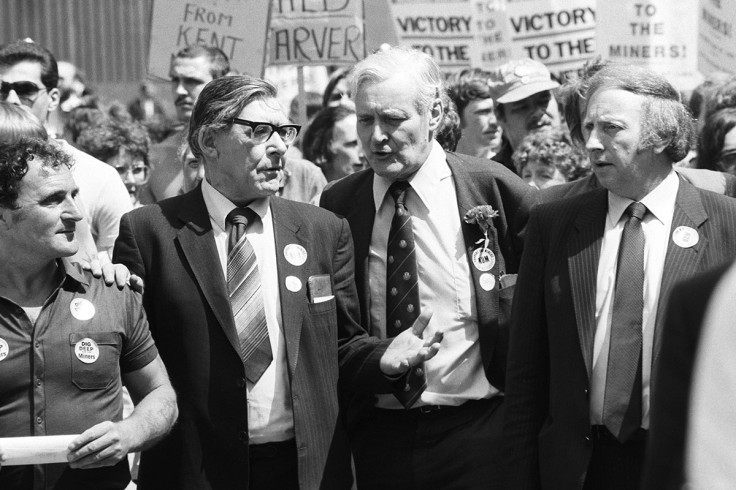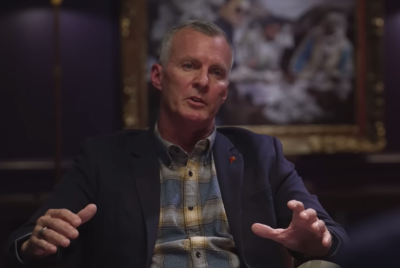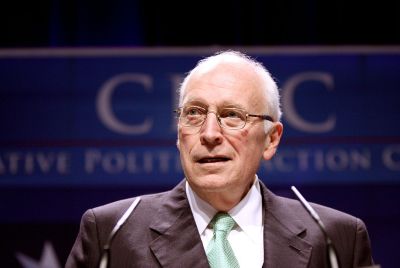Fake news is thriving — but history shows it's nothing new
Fake news abounded in George Orwell's time just as it did as far back as you wish to look.
I remember sitting in a lecture hall at university almost 10 years ago and being told by a tutor that there were "no such things as facts, only theories".
The tutor in question used to regularly go off on portentous tangents of this sort: about how around the world there were "different forms of democracy"; about how countries like Iran were "actually very democratic"; and about how developments like promiscuity were corroding the moral fibre of young people in the West.
The lecturer's politics were vaguely Islamist, though for obvious reasons (this was at the height of the so-called "War on Terror") it would have been difficult for him to come out and openly peddle ideas like that. And so instead he buried his real aims under a mountain of dissembling cant and euphemism.
We had our truth and he had his.
Relativism of this sort was hugely fashionable in university departments and the liberal press at the time, whereas any attempt to argue that one political system might be superior to another was tarred by its association with the Bush and Blair doctrine of invading every country whose government America did not like.
Nowadays this style of argument would probably be described as "post-truth" – the catch-all term for a world in which hard facts are as elusive as steam from a kettle. Every generation believes it is living in a more momentous time than the previous one, but each generation seems to vaguely accept that their predecessors were more truthful and virtuous.
"At one time we had truth and lies," said the blurb of a 2004 book entitled The Post-Truth Era, whereas now/then "euphemisms abound". Back when Donald Trump was still trying to figure out whether he was a Democrat or a Republican, America was already said to be sinking down into a world where "borders blur between truth and lies".
If you still need to rid yourself of the idea that lying for political gain is something that has only emerged with the advent of Donald Trump, go to your nearest library (if you still have one) and look at a newspaper from the 1980s.
I have been poring over some of the press cuttings from the 1984 miners' strike in recent weeks, and what is striking is the sheer quantity of fake news that was printed and broadcasted by plenty of supposedly 'respectable' media outlets.

It is, for example, difficult to think of a better example of fake news than The Sun's attempt to portray miners' leader Arthur Scargill as some sort of Nazi on its front page, with his arm raised underneath the headline "Mine Fuhrer".
Stuffy establishment outlets were not untainted by the glut of fake news, either. During the Battle of Orgreave in South Yorkshire, the BBC gave the entirely false impression (using footage that had been edited out of chronological order) that the police carried out brutal mounted charges only in response to pickets throwing stones. It was subsequently revealed that the mounted charges were unprovoked.
There were also numerous lies by omission. According to the journalists Francis Beckett and David Hencke, who have written probably the most balanced account of the miners' strike, just one in seven national newspapers agreed to print a photograph of a young woman being attacked by a mounted policeman at Orgreave.
'Fake news abounded in George Orwell's time'
Since Trump's inauguration, everyone seems to be quoting George Orwell's remark, made in 1943, that: "The very concept of objective truth is fading out of the world."
Orwell was referring to the Stalinist falsification of the events that took place during the Spanish civil war, though his remarks might just as easily be applied to the inheritors of the Stalinist mantle today, who spend their time spreading poisonous lies about what is happening in places like Syria and Russia.
Yet rather than standing as proof of Orwell's aptitude for 'prophecy', as so many seem to be suggesting in their own post-fact way, the aforementioned quote is better viewed as evidence that politics has always been awash with deception.
Fake news abounded in Orwell's time just as it did as far back as you wish to look. It still thrives today. We are forever on the cusp of a 'post-truth' society, just as every generation is supposedly more self-centred/miserable/dishonest etc., than the previous one.
Treating the internet age with caution is probably wise. Social media does, after all, allow cranks and propagandists to foist their distortions on those who might otherwise have encountered information through official channels.
But don't fall for the fashionable conceit that we are living in an unprecedented age of dishonesty.
The official channels have never given the unvarnished version of reality they purport to, and the sudden emergence of a 'post-truth world' is itself an invention; the invention of those who are forever on the lookout for a new phenomenon to sell books and wax self-importantly about in newspaper columns.
James Bloodworth is former editor of Left Foot Forward, one of the UK's top political blogs, and the author of The Myth of Meritocracy.
© Copyright IBTimes 2025. All rights reserved.





















